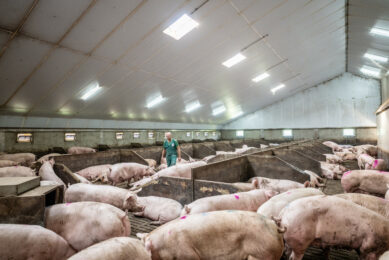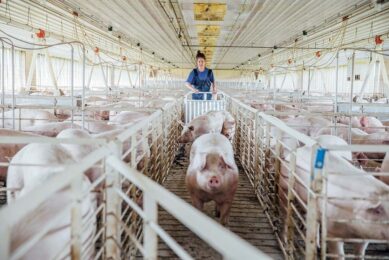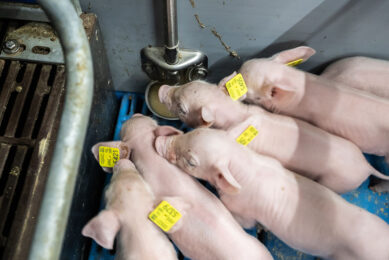UK meat industry future – Outlook 2010, A Changing Climate?
This annual keynote event, jointly hosted by British Pork Executive (BPEX) and English Beef & Lamb Executive (EBLEX) focused on the future of the UK meat industry plus the challenges of climate change and it’s implications for the livestock industry.
Sion Roberts (CE, English Food and Farming Partnerships) highlighted the fact that food expenditure over the last 20 years has remained fairly stable but overall consumer expenditure has risen sharply so food effectively is twice as affordable as it was in the past. Roberts pointed to changes in ownership in the meat sector, with Vion (Netherlands) and Tulip buying UK businesses. Whilst some might see this as an erosion of UK control of the meat sector, Roberts viewed it as a good thing as it brought in technological expertise and know-how which would be beneficial in the long term.
©
Mark Driscoll is Head of Sustainable Consumption Policy, World Wildlife Fund. “Forty per cent of food is wasted – reducing this would help the Environment hugely”. Driscoll calmed the audience by saying that there was no need for us all to go vegetarian but meat consumption had to be reduced, with consumers eating less, but better quality, meat. Deforestation is still occurring in Brazil, to provide land to grow soya to feed to pigs and poultry.
©
“Water is more important than climate change,” stated©Anthony Kleanthous, founder of Here Tomorrow Ltd / Senior Policy Adviser on sustainability at WWF-UK. “Water in some aquifers, once extracted, will never be replaced”. Less soya should be fed to pigs plus it should be RTRS Soya – sourced through the Round Table on Responsible Soya Association. The big retailers are the Gatekeepers – they have massive influence on the food chain and consumers. Anaerobic digesters convert pig slurry, food and slaughter house waste into fertiliser and energy. “New digesters in the UK will pay for themselves in 5 years,” said Kleanthous.
©
UK pig market
James Park is Senior Analyst, AHDB Market Intelligence. Park reviewed the UK pig market highlighting the ongoing trend in strong UK pig returns in part due to the weak Pound. Imports of pork and bacon from Denmark have fallen, to be replaced by those from Netherlands, Germany and Ireland. The national pig herd is finally starting to grow again, as confidence returns, although output is still poor with only 20 pigs sold per sow per year. Sow numbers are not predicted to rise dramatically as producers choose to use profits to replace worn out existing buildings, rather than expand herd size. Also IPPC is making farmers wary of indoor expansion, whilst further legislation is making outdoor pig farmers (40% of UK herds) also concerned about putting down more sows.
James Park is Senior Analyst, AHDB Market Intelligence. Park reviewed the UK pig market highlighting the ongoing trend in strong UK pig returns in part due to the weak Pound. Imports of pork and bacon from Denmark have fallen, to be replaced by those from Netherlands, Germany and Ireland. The national pig herd is finally starting to grow again, as confidence returns, although output is still poor with only 20 pigs sold per sow per year. Sow numbers are not predicted to rise dramatically as producers choose to use profits to replace worn out existing buildings, rather than expand herd size. Also IPPC is making farmers wary of indoor expansion, whilst further legislation is making outdoor pig farmers (40% of UK herds) also concerned about putting down more sows.
By Stuart Lumb
©











